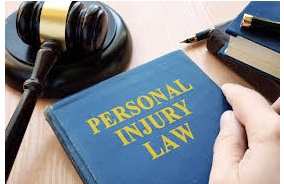You’ve been injured in an accident and you’re wondering what your next step should be. Should you hire an attorney? How long do I have to wait before filing a lawsuit? Do I even have a case?
Personal injury lawsuits are a legal process that can help you recover for damages caused by negligence or another person’s actions. The most common types of personal injury lawsuits include medical malpractice, slip and fall accidents, car crashes, motorcycle crashes and dog bites.
A personal injury lawsuit is not required in all cases, but if your injuries are severe enough that they affect your ability to work or perform everyday tasks like bathing and cooking, then it may be worth it to consult with an attorney.
What Is Personal Injury Lawsuit
A personal injury lawsuit is a claim for damages for harm caused by another person’s negligence or intentional misconduct. Personal injury lawsuits are filed on behalf of the injured party by a representative called a plaintiff. The plaintiff can sue for money damages such as medical expenses, lost income, pain and suffering, and more. The plaintiff usually hires an attorney to represent him/her in court because there are complex procedural rules that must be followed when suing someone for damages.
The type of legal action taken depends on how much money is claimed as compensation and how severe the injuries were sustained from the accident or incident. A legal action can be either voluntary or involuntary:
Voluntary – This means that you voluntarily bring suit against someone who has harmed you through negligence or intentional misconduct.
Involuntary – This means that someone else has brought suit against you because they feel that their rights have been violated or harmed by what happened to them

Importance of medical records
- Get a copy of your medical record. This can be done by contacting the hospital or doctor who treated you after the accident, as well as your insurance company.
- You will need to pay for it, but it’s worth it!
- If possible, get copies of all records from the scene of the accident and any other locations related to your injuries (such as X-rays).
Consult with a lawyer
Before you take the next step, you should consult with a lawyer. Your case is too important to risk on your own. A law firm such as the Ward Law Firm can help you understand what legal options are available to you and how best to proceed with your claim.
You may be able to find one through referrals from friends or family members who have already had success in similar situations. But if not, there are other ways of finding the right lawyer for your needs:
- Check out their website and see if they look trustworthy based on its design and content (e.g., does it feature relevant awards won by the firm?).
- Search online reviews of various attorneys in your area(s) of interest. Look specifically at both negative and positive reviews. The latter will give insight into whether past clients felt that their cases were handled professionally by their chosen lawyer.
Things To Know Before Suing
If you are injured in an accident and want to sue, you need to know how to do it.
You need to know what you are entitled to- In order for someone else’s negligence or carelessness to be considered your fault, that person must have owed you a duty of care. That means they should have been aware of their actions’ potential for harm. And they should have taken reasonable steps not only not to cause injury but also not allow harm from occurring at all.
How do I find out whether there has been any wrongdoing?
The first step is always talking with people who witnessed what happened. If necessary (say if no one else saw), then check public records like police reports or ambulance logs before contacting anyone else directly.
What kind evidence will show up during trial?
Any kind! Accident reconstructionists use physical data such as skid marks left behind by vehicles involved. Medical experts might testify about whether injuries could only have occurred after impact rather than before based on how much time elapsed between impact & injury. Eye witnesses may describe exactly what happened from start until finish using vivid detail.
Conclusion
A personal injury lawsuit can be a long, drawn-out process. Of course, this will largely depend on the circumstances of your case and which party you are up against. However, it is important to do as much preparation as possible in order to ensure that you are as well-prepared for the legal battle as possible. The first step on this journey is creating a list of all the questions and concerns that you may have along the way.




